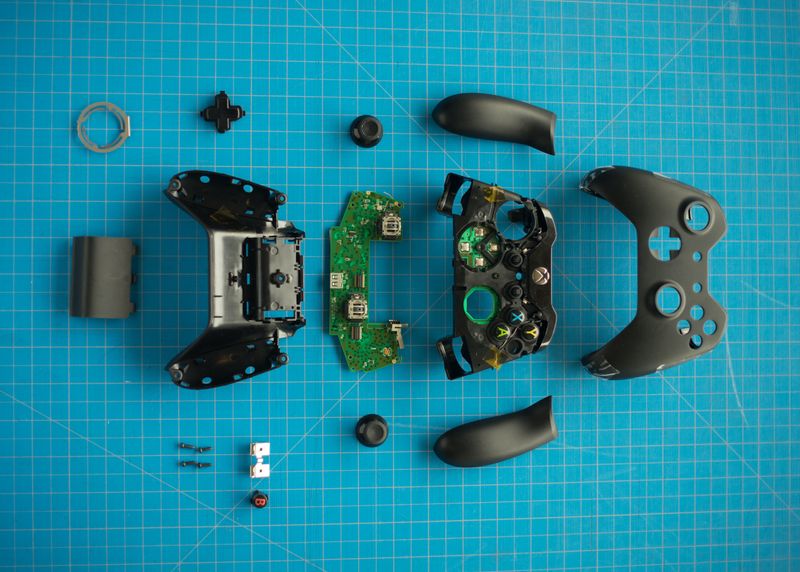Hedgehog correspondent Ryan S. Gladwin introduces Facebook to the metaverse, which is already starting to get crowded.
The metaverse has been described as "unprecedented interoperability" by venture capitalist Matthew Ball, whose own name has become synonymous with the term. The metaverse described by Ball is a newly evolved online environment that allows for the cross-compatibility of everything digital. Also creating a new frontier full of potential fiefdoms, with fortunes to be made.
However, those aren't the only features of the metaverse. Put simply, the metaverse is an online reality. A place for people to live life within the digital realm. From workspaces to live concerts. The metaverse is an online utopia, used as a way to escape our dystopian reality.
Facebook has entered the metaverse with their announcement to rebrand as Meta. Despite the new name being extremely uninventive, it may result in the company being seen as synonymous with the metaverse.
Think about it. Most people have no clue what the metaverse is but they'll know Facebook's new name. Once the metaverse becomes a household phrase, the app Meta will have been in the mouths of family members for years.
If we trusted Facebook, that'd be one thing. But many of us have seen the damage the company has caused during its "move fast break things" era and beyond. The metaverse has the potential to be even more impactful than social media, so do we want Facebook leading the charge? They may not be making the utopia we've envisioned but, instead, an alternative dystopia to the reality they've already damaged.
I decided to round up the metaverses that exist today, both mainstream and not, with a look into the future of this space. Let's see who is up to the challenge!
Mainstream Games
We've all heard of Fortnite but not everyone has put the metaverse tag to it. Starting as a simple battle royale game, it has grown into the most popular metaverse we have today. Online communities, worlds to travel to, and economies have grown within their game. In 2020, Fortnite smashed records when 27 million users logged on to attend a virtual performance from rapper Travis Scott.
Fortnite's creator, Tim Sweeney, has been vocal about his intent to create and expand the metaverse, stating that he's had aspirations to create the metaverse all the way back in 1998 — something Zuckerberg has echoed.
We've had metaverse aspirations for a very, very long time. It started with text chat in realtime 3D with 300-polygon strangers. But only in recent years have a critical mass of working pieces started coming together rapidly.
— Tim Sweeney (@TimSweeneyEpic) June 14, 2021
Just because it's (arguably) the most popular metaverse, doesn't mean Fortnite was the first. Games like GTA V, Roblox, and Minecraft have traversed the space for years.
The metaverse ethos has seeped its way into gaming culture already, it just hasn't necessarily been named that. For as long as I can remember, people have gathered online to create communities and have fun with each other. It's just now, with advancements in technology, that the metaverse is closer to becoming reality than ever before.
What mainstream metaverses lack is the key term previously mentioned: unprecedented interoperability. We have some way for this to be part of the mainstream metaverse.
Real Blockchain Metaverses
Now I can hear you asking, what does this have to do with cryptocurrency? I thought Hedgehog was all about crypto? You're right, we are and so is the metaverse once you dive deep enough.
Projects like Next Earth showcase the kind of role cryptocurrency can play within the metaverse. Next Earth allows users to buy virtual pieces of land based on the physical earth. You can fly over to Paris to purchase the land where the Eiffel Tower sits and now you own that virtual plot of land as an NFT.
Decentraland takes this idea to another level. Instead of purchasing land that is largely useless, like in Next Earth (sorry guys), your land represents a place within their metaverse that users can visit.
Once users purchase their land, they can do whatever they want with it. Create a hub for your online business, host virtual lectures or even pop-up a billboard. Users have found creative ways to use their virtual land creating a mini economy and a fully immersive metaverse.
Interoperability starts to become reality in a place like this. Moving from game to game, venue to venue and place to place, users can move assets across the metaverse.
The land is capped to 90,000 "parcels," all of which are already sold. Meaning the only place you can buy these land NFTs is through their marketplace — using their cryptocurrency MANA. The most expensive plot of land was sold for just over $900,000, back in June of 2021. With the price of land so high, users have turned to renting land rather than buying it spawning virtual landlords... the metaverse is getting uncomfortably real here.
Another example of a metaverse that utilises the blockchain is Sandbox. This project aims to be the metaverse home for multi-platform gaming, providing a virtual space for games to be built and showcased.
On their marketplace you can purchase NFT collectables for in-game cosmetics, collaborating with huge companies like Square Enix, Atari, and Care Bears.
In a tweet, Sandbox spoke out about how Facebook/Meta plan to create the metaverse. Waving the flag for users owning their data, transparency, and open borders:
.@Meta, Facebook underlying business model is to target people with extreme precision for Advertising.
— The Sandbox (@TheSandboxGame) October 29, 2021
Here’s ou way to build a #metaverse 👇
Join @TheSandboxGame Open NFT metaverse
🔹Own your Data #Blockchain
🔹Create & Sell Assets #NFTs
🔹Choose your own Identity #Avatar pic.twitter.com/NDJXRn5MLy
The company behind Sandbox plans to fade further and further into obscurity, leaving a DAO (Decentralized Autonomous Organization) in its wake. However, Decentraland is already one step ahead, proudly wearing the badge of being the first fully decentralized virtual world.
A DAO allows holders of the chosen cryptocurrency (SAND or MANA in this case), to vote on what should be developed, funded, or adjusted with the metaverse. For example, we previously mentioned that there are only 9,000 parcels of land on Decentraland. If the majority of voters decided to increase the number of parcels that is what would happen.
Sandbox plans to launch their DAO in the first quarter of 2022.
Future Endgame
There is no clear dictionary definition for the metaverse. No paper that sets the theories and laws to the metaverse. Nor is there a leader or primary mover to the metaverse that we can all look to for guidance. We have no Satoshi Nakamoto with their whitepaper.
Instead, it is up to those who use it to define how it functions. To many, the metaverse is open, flexible and liberating. The goal of unprecedented interoperability feels like the next (very) big leap for the metaverse.
One way this can be done is by allowing users to move profiles across platforms and/or games. Crucible Network is working to bridge this gap. They allow you to create a profile that will be taken from AAA game to AAA game. Removing the frustration you get from not being able to use your favourite skin from — for example — Fortnite in Minecraft. Crucible Network is attempting to fix this issue. The company's website has a defined endgame:
The new creative and economic renaissance, all worlds and applications connected, all user data under personal control – freedom to go anywhere, build anything and represent yourself.
A thriving, global direct to avatar economy worth trillions is the endgame.
The ideology of the metaverse has no borders. You can hop from GTA to Habbo Hotel without leaving a virtual space. Less annoying menus taking you out of the immersive experience. More seamless interconnectivity with games, environments, and people. Complete digital fluidity. This will take time.
The metaverse is young. Those leading the storm right now are using blockchain to build this new reality. Yes, landlords may still exist in the metaverse but we have a chance to deconstruct some of the worse things about real life. Trust in real world governance is at an all-time low and individuals feel powerless to bring any sort of change. In this macro environment, creating a decentralized metaverse is more attractive than ever.
This vision is something that Facebook is trying to take away from the world. Although Facebook is championing interconnectivity and compatibility, they will create a world that is anything but decentralized.
They don't just want to be the industry leader but the industry ruler. Becoming the home for the metaverse and the head of the technology required for it. If their vision turns into reality, they'll own your data, control how the metaverse operates and continue their reign over technology.
Now, this begs the question: do you want a Facebook metaverse? Or a blockchain metaverse? The choice is yours.
If you enjoyed this piece, check out Ryan's website, follow him on Twitter, and of course subscribe to the weekly Hedgehog newsletter!






